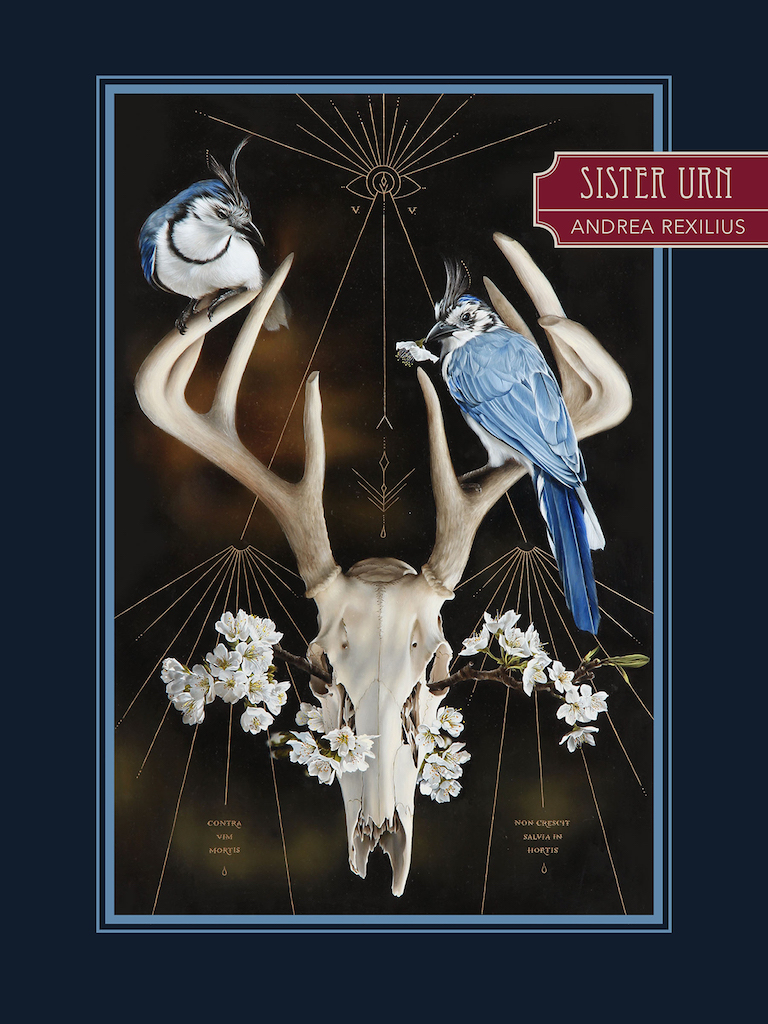This is the line of outcome.Gravity of a vein’s collapseor a heart giving waypaper thin, alreadymade of ash.Afterwards we gathered youinto pails or buckets,into plastic bags tied shutwith string.Skyward and acrossthe Atlantic.I went to a place without trees,to sever your mind from mine.You were always so hungry,or cold. Nearly a ghost.Still, everyone will saywhat was it like to lose a sister.What was it like to see her bodyembalmed within church wallsin your hometown.
Feature Date
- September 30, 2019
Series
- What Sparks Poetry
Selected By
- J. Michael Martinez
Share This Poem
Print This Poem
Copyright © 2019 by Andrea Rexilius
All rights reserved.
Reproduced by Poetry Daily with permission.
Andrea Rexilius is the author of The Way the Language Was (Letter Machine, forthcoming in Spring 2020), Sister Urn (Sidebrow Books, 2019), New Organism: Essais (Letter Machine, 2014), Half of What They Carried Flew Away (Letter Machine, 2012), and To Be Human Is To Be a Conversation (Rescue Press, 2011). She is Core Faculty in Poetry, and Program Coordinator, for the Mile-High MFA in Creative Writing at Regis University. She also teaches in the Poetry Collective at the Lighthouse Writers Workshop in Denver, Colorado.
“To call a work ‘poignant’ is to say its needle has pierced you, that you may touch the needle quick at work as it restitches what’s split or frayed. Sister Urn wounds me like this. At the center we find: traces of a sister, animal dioramas, feathers, stray threads, evidence of the anthropocene. A calm, unflinching clarity lights this work that glimmers with Rexilius’ swift and bewitched imagination wielding a power to transform words before our eyes, as hem turns to hymn to hemoglobin to hemisphere. Rexilius leads us into that hemisphere long darkened by despair while holding the small illuminations of this music: ‘We blank our voices / going forward into the night. Uvula as lantern.’ ”
—Carolina Ebeid, author of You Ask Me To Talk About the Interior
“Andrea Rexilius’s visionary requiem for her sister spears like broken glass through the palm, emancipating us from Cartesian solitude and into the holy space of conjoined mortalities. Her lyricism crafts a cathedral to house both the heaven our bodies were and the hells the flesh must endure. Here, memories hunt for their other half in forms now mourned, and, in death, ripened into meadowlark and tree branch. Here, we learn to read from the compendium of the beasts and their communal worlding. Here, Rexilius excavates language to our human foundations, illuminating the self we made through the other: and we are colony, the hive and the flock. Andrea Rexilius’s brilliant Sister Urn presses us against the afterlife, and, in radiant revelations, achieves, as if in living diorama, the body as an epistle of love.”
—J. Michael Martinez, author of Museum of the Americas
Poetry Daily Depends on You
With your support, we make reading the best contemporary poetry a treasured daily experience. Consider a contribution today.




